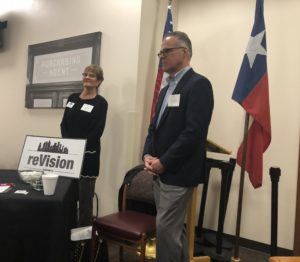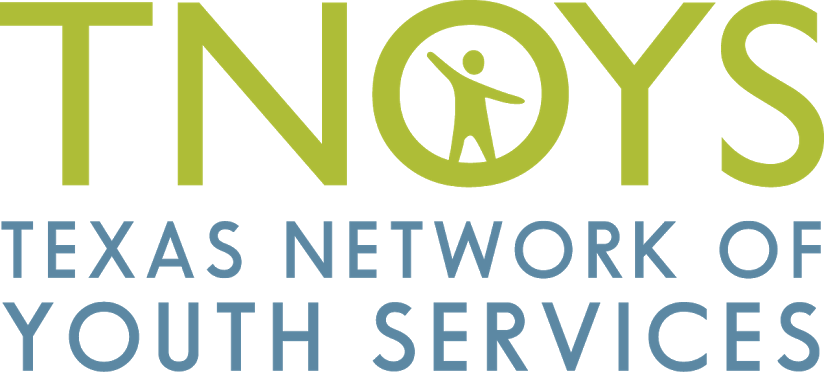 One of the many benefits TNOYS offers our member organizations is assistance making their voices heard in policy decisions that impact their work. Last month, we hosted one of the most important events that helps us do that, our biennial Member Advocacy Day and Innovation & Excellence Showcase at the Texas State Capitol.
One of the many benefits TNOYS offers our member organizations is assistance making their voices heard in policy decisions that impact their work. Last month, we hosted one of the most important events that helps us do that, our biennial Member Advocacy Day and Innovation & Excellence Showcase at the Texas State Capitol.
The day kicked off on Wednesday, February 20, with our Winter Membership Meeting, where TNOYS’ new Director of Policy Lauren Rose shared our legislative agenda with the group. The attendees, representing member organizations from across the state, then headed off to individual meetings with state legislators in the Capitol building.
In the afternoon, the group came back together for the Innovation & Excellence Showcase, which was held in the Capitol Grill inside the Capitol building and open to attendance by legislators, their staffers, and other stakeholders. The goal of the showcase was to provide examples of best practices in the youth services field to help inform policymaking that impacts youth and families. Nine member organizations presented about excellent programs and practices they have employed: Covenant House Texas, Family Service Center of Galveston, Harris County Youth Collective, Houston:reVision, Parks Youth Ranch, Texas Council of Child Welfare Boards, STARRY, THRU Project, and Upbring.
The organizations shared a variety of different experiences and learnings. Below are just a few highlights:
- Covenant House spoke about the success of the strengths-based model they use to support youth, in which they focus on helping youth discover and pursue their own strengths rather than trying to control their path forward. “We are supposed to provide a safe place for these kids to figure out their life, and beyond that, it’s none of my business. Our jobs are not to mold the kids, shape the kids, or teach them a lesson,” explained Covenant House’s Scurry Miller.
- Family Service Center of Galveston County shared how two recent crises in their area — Hurricane Harvey and the Santa Fe school shooting — have prompted them to adapt and develop new and innovative ways of providing mental health services in their community. Those changes have included forgoing regularly scheduled weekly visits to instead meet clients in schools or other places convenient for them, and providing trauma-informed care training not just to their own staff but also to organizations throughout the area to create a trauma-informed community.
- Houston reVision shared their approach to helping dual-status youth through a three-part program that involves mentoring and connecting them to a community and positive peer culture. “What we know is that if we can get kids connected to activities that are challenging, skills-based and require a lot of energy and time, they will exceed our expectations and succeed every time,” said Executive Director Charles Rotramel. “reVision is about building that community, about connecting the kids not just to the adults but to a positive peer culture.”
- Parks Youth Ranch spoke about how their emergency shelter fits into the continuum of care for transition-age youth by serving as a transition opportunity for kids to go from a structured residential environment to more independent living. “A lot of times emergency shelters are the first line of defense, the first person who says this is your safe space,” Executive Director Shannon Stavinoha explained.
- Texas Council of Child Welfare Boards shared how they are helping to connect the broader community to the child welfare system through awareness raising and volunteer support, creating a stronger support system for youth in care. They also highlighted their Fostering Brighter Futures project to help improve perceptions of the child welfare system.
- Upbring shared information about their newest product, Upbring Marketplace, an online platform that allows them to better manage in-kind donations that come through to their 23 locations across the state and track donor information.
These are just a few of the many innovative practices we see our members implementing to make the future better for Texas’ youth. TNOYS was glad to once again have the opportunity to bring these ideas directly to decision makers at the Capitol during this important time for policymaking in our state. It is just one of the ways we are able to ensure youth and the providers who serve them are able to have a voice in decisions that will impact them.
